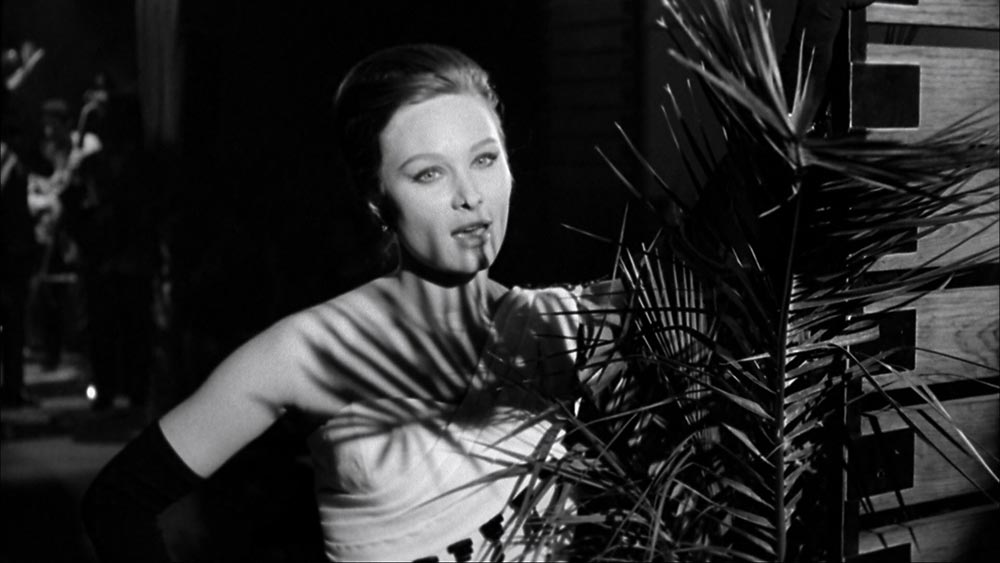By 1964, the year of Death Whistles the Blues, Jesús (Jess) Franco had already directed eight feature films in five years, including his international breakthrough, The Awful Dr. Orlof (1962). This prolific and varied early run set the stage for Franco’s 50-year career, in which he would direct 207 films in a myriad of genres: horror, softcore porn, westerns, women-in-prison, hardcore porn, mysteries, spy capers, and the occasional film noir. Death Whistles the Blues is the best example of a Franco noir, finding the director successfully balancing genre conventions with his own jazz-inspired, improvisational style.
Set in New Orleans (though shot with obvious love in Franco’s native Spain), Death Whistles the Blues is the story of Lina, who loses her husband in a botched attempt at smuggling weapons. Later, Lina marries Vogel, a nightclub impresario who, unbeknownst to her, is the same criminal mastermind who set up her late husband to take the fall years before. When their third accomplice, Julius, gets out of jail, he threatens to let Lina in on the secret and destroy everyone’s fragile happiness. As in the best noirs, there are shady gangsters, beautiful and sad nightclub singers, and hangers-on with questionable motives galore to muddy the waters. Jazz fans will delight in the film’s smoky score, which includes songs by Franco himself.
Death Whistles the Blues was a watershed moment for Franco, as he went from a relative unknown to gaining the attention of Orson Welles. The detective investigating the film’s sordid story is played by Fortunio Bonanova, who builds a bridge between Franco’s mid-’60s noir and the genre’s Hollywood heyday. Bonanova had played small but memorable roles in Double Indemnity (1944) and Kiss Me Deadly (1955), as well as in Citizen Kane (1941). Welles called Franco after seeing Death Whistles the Blues and offered him the job of Assistant Director on Chimes of Midnight (1966), developing Franco’s technical talents and cinematographic eye and enabling him to go on to create the lushly beautiful erotic horror for which he would become best known.
Post-noir but pre-neo-noir, Death Whistles the Blues is, for Franco-philes, a fascinating puzzle piece in the history and thematic obsessions of “Uncle Jess” (he remade it in 1977 as the much sleazier Kiss Me Killer); for everyone else, it’s a thoroughly enjoyable, twisty vintage crime drama.
Death Whistles the Blues screens tonight, April 10, and throughout the month at Spectacle Theater as part of the series “Whistling Rififi in Spain: Two Crime Films by Jess Franco.”


